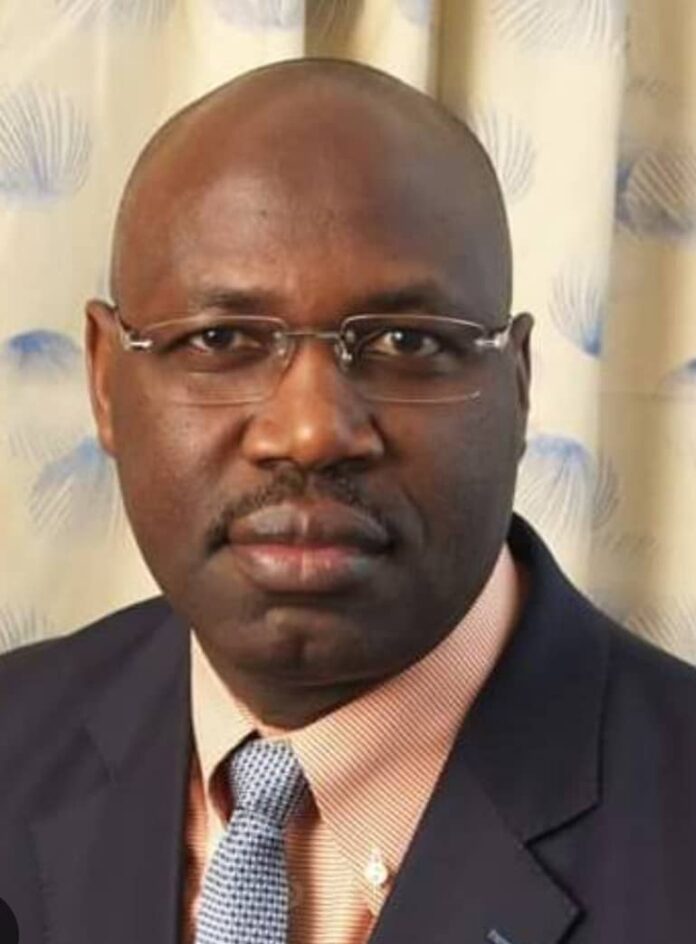By: Dr. James Bwala
The discourse surrounding Ahmadu Musa Kida and Sahara Reporters raises critical questions about the ethical standards in contemporary journalism. Kida, as a prominent figure in Nigerian sports administration, has become embroiled in controversies that reflect broader issues within the media landscape. Sahara Reporters, known for its investigative journalism, often blurs the lines between reporting and sensationalism, which can undermine public trust. This critique explores how such practices may detract from the credibility of journalism as a whole.
One significant concern is the potential for misinformation when journalistic integrity is compromised. The sensationalist approach taken by some media outlets can lead to distorted representations of events or individuals, particularly in politically charged environments. This tendency not only affects the subjects of news stories but also shapes public perception and discourse. In this context, Kida’s experiences serve as a case study of how personal narratives are manipulated for broader agendas.
Moreover, ethical journalism necessitates accountability and transparency—principles that seem increasingly neglected by platforms like Sahara Reporters. The lack of rigorous fact-checking and adherence to ethical standards can result in harmful repercussions for individuals involved. As such, it is imperative for journalists to uphold their responsibilities not only to inform but also to respect the dignity of all parties involved in their stories.
The assertion by Saharareporters that Ahmadu Musa Kida will compromise Nigerian interests is a glaring example of unethical journalism. This claim not only lacks substantiation but also undermines the principles of responsible reporting. Ethical journalism, as outlined in various studies, emphasizes the necessity for accuracy and fairness. By making sweeping accusations without credible evidence, Saharareporters fails to uphold these standards and instead engages in sensationalism that could potentially harm Kida’s reputation and the broader Nigerian context.
Moreover, the ethical dilemmas faced by journalists in Nigeria are well documented, underscoring the challenges of maintaining integrity within a politically charged environment. The media’s role should be to inform rather than to defame; therefore, such reckless claims reflect a significant deviation from journalistic ethics. The consequences of this behavior can be profound, contributing to public distrust in media institutions and exacerbating existing societal tensions.
Ultimately, it is imperative for media outlets like Sahara Reporters to adhere strictly to ethical guidelines. Responsible journalism requires rigorous fact-checking and an understanding of the complexities surrounding individuals like Ahmadu Musa Kida. Failing to do so not only tarnishes their credibility but also poses risks to national cohesion and integrity (Hile, 2024). Thus, it is essential for journalists in Nigeria to navigate their responsibilities with care and accountability.
The report by Sahara Reporters is indeed very sad for every practicing journalist who understands “MORALITY” in framing issues to influence public perception. It is only in Nigeria that one can go into media and start writing unsubstantiated news about the person they virtually know nothing about.
Journalism, like any profession, is guided by ethics, which enjoin journalists to undertake investigations before writing about any personality. That was not the case when Sahara Reporters came up with their reportage about the appointment of Ahmadu Musa Kida as non-executive chairman of NNPS Limited.
I need not say much about the person of Ahmadu Musa Kida here, but many Nigerians who came across him will agree that this personality with mincing words is the best thing that happened to the Tinubu administration in terms of appointments. His records at Total Oil speak volumes and are available for serious journalism research. His accelerated growth and rise to deputy managing director. A growth not due to Godfatherism but due to the highest degree of professionalism, owing to his result orientation and the value addition he put to bear in his capacity as their managing director, is straight for any debate.
This is a hard-earned achievement, not through bootlicking or lobbying. He retired after thirty-five (35) years of meritorious service, but the organization had to retain him as a non-executive director. All these achievements were due to his hard work, dedication, honesty, and selfless service.
To Nigeria Basketball, one need not be told of his landmark achievements from nowhere in the map of basketball. The Nigerian team (both men and women) started to exhibit brilliant performance. Nigeria became the first country to beat the USA on their home turf, which is highly unprecedented. At the Australia Olympics, America narrowly escaped humiliation on a global stage by Nigeria; this result was the encouragement, funding, and dedication of Ahmadu Musa Kida and his team. He remains a very good team player, an expert in the oil and gas sector, and beyond that, a truly outstanding nationalist who will not compromise the national interest of his country at the expense of anybody. I have known Ahmadu Musa Kida for several years, and I can attest to his patriotism, honesty, and dedication to duty in terms of taking all responsibility with the seriousness it deserves.
* James Bwala, PhD, writes from Abuja.




